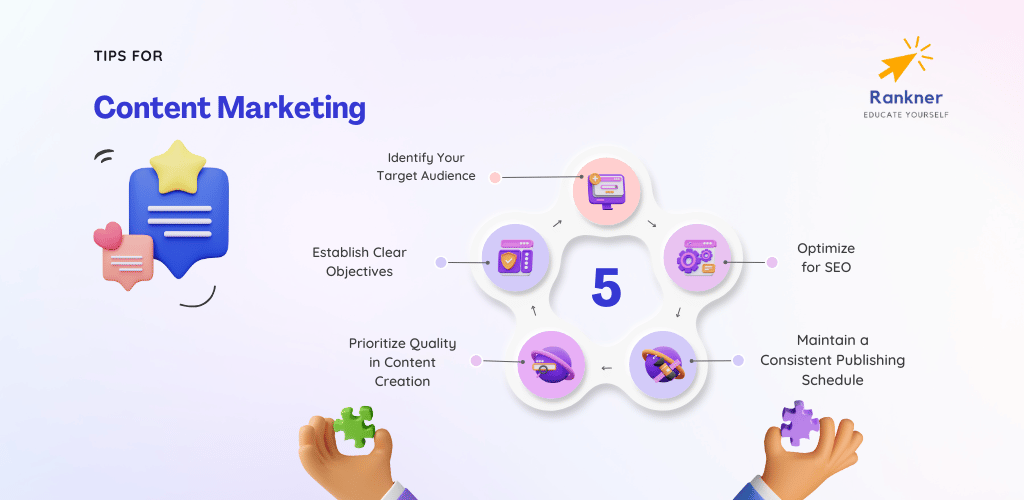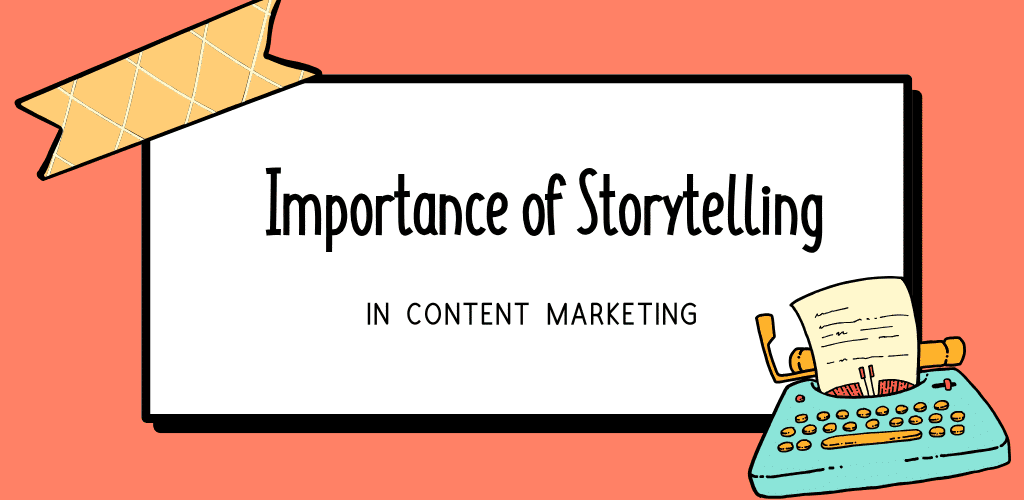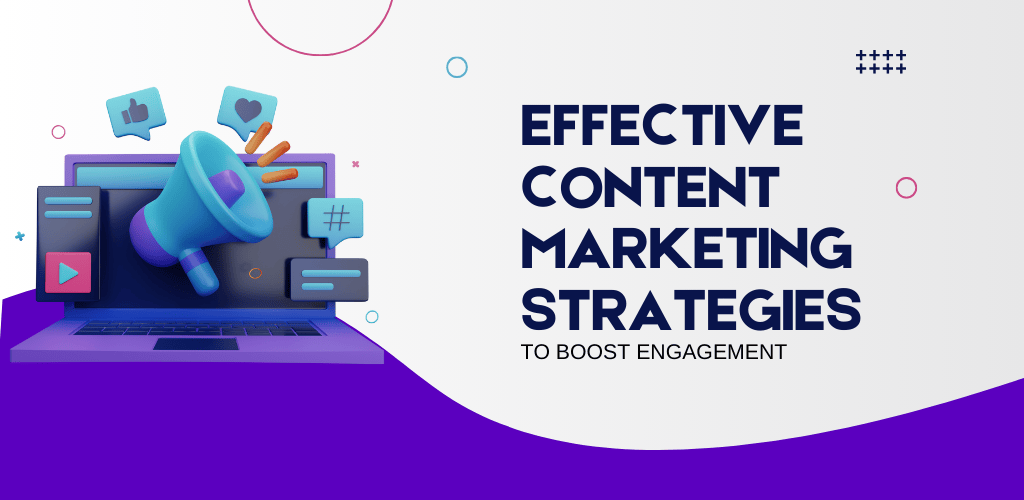Table of Contents
Content marketing Strategies has evolved from a trendy term to a vital strategy for brands aiming to distinguish themselves in the bustling digital arena. Whether you’re a new business or a well-established company, excelling in content marketing can greatly enhance your online visibility and customer interaction.
In this article, we’ll delve into the essence of content marketing, its significance, and how you can leverage it to expand your business. We’ll also address common questions and share tactics that leading bloggers use to amplify their content’s effectiveness.
Introduction: Understanding Content Marketing and Its Importance
Content marketing involves crafting and distributing valuable, relevant content to captivate and engage a specific audience. This can include blog articles, videos, infographics, podcasts, and more. Unlike traditional advertising, content marketing isn’t about directly selling your product or service. Instead, it aims to offer solutions, information, or entertainment that your audience seeks, thereby fostering trust and loyalty over time.
Why is content marketing crucial? According to a report by the Content Marketing Institute, 70% of marketers have found their content marketing strategy more effective in the past year. This is because well-planned content marketing helps businesses:
- Enhance brand recognition
- Cultivate enduring relationships with their audience
- Increase website traffic
- Boost conversion rates
Key Elements of a Successful Content Marketing Strategy
To thrive in content marketing, having a clear plan is essential. Focus on these core components:

1. Identify Your Target Audience
Knowing your audience and their needs is fundamental to any content strategy. Develop detailed buyer personas to understand their pain points, challenges, and preferences.
2. Establish Clear Objectives
Your content marketing efforts should align with specific, measurable goals, whether it’s increasing website traffic or generating leads. Setting KPIs (Key Performance Indicators) will help you monitor your progress.
3. Prioritize Quality in Content Creation
While regular content publication is important, quality should always take precedence. Each piece of content should offer genuine value to your audience, whether by answering common questions, solving problems, or providing new insights.
4. Optimize for SEO
A well-optimized blog post is crucial for achieving high search engine rankings. Focus on target keywords, create engaging headlines, and structure your posts with H1, H2, and H3 headings for better readability.
5. Maintain a Consistent Publishing Schedule
Adhere to a content calendar to ensure regular engagement with your audience. Consistency builds trust and encourages your audience to return for more.
FAQs About Content Marketing
What types of content should I create?
There are numerous content formats to explore, including blogs, videos, infographics, podcasts, and case studies. Experiment to discover what resonates best with your audience.
How do I measure the success of my content marketing efforts?
Utilize tools like Google Analytics to track metrics such as traffic, engagement (likes, shares, comments), and conversion rates. These insights will help you refine your strategy over time.
How often should I publish content?
While there’s no one-size-fits-all rule, most successful marketers suggest publishing new content at least once a week. However, the frequency depends on your industry, audience, and resources.
What’s the difference between content marketing and traditional marketing?
Traditional marketing typically focuses on directly promoting a product or service through ads, while content marketing emphasizes providing useful information or entertainment to build a long-term relationship with the audience.
Do I need a blog for content marketing?
While a blog is a popular choice for content marketing, it’s not the only option. Depending on your audience and industry, you might find success with video tutorials, podcasts, or social media content.
The Role of Social Media in Content Marketing
Social media and content marketing are closely linked. Platforms like Facebook, Instagram, and LinkedIn enable you to amplify your content, increase its visibility, and engage with your audience in real-time. Here are some ways social media complements content marketing:
1. Content Distribution
Social media is a powerful tool for sharing your content. You can drive traffic to your blog posts or videos by promoting them on platforms where your audience is most active.
2. Engage with Your Audience
Unlike traditional marketing, social media allows for two-way communication. You can engage with your audience through comments, direct messages, and polls, creating a more interactive experience.
3. User-Generated Content
Encourage your audience to share their own experiences with your product or service. User-generated content (UGC) not only builds trust but also expands your reach.
4. Leverage Influencer Partnerships
Collaborating with influencers who align with your brand values can help you reach new audiences and enhance your credibility.
The Importance of Storytelling in Content Marketing

One of the most compelling aspects of content marketing strategies is its ability to tell a story. People connect emotionally with stories, making them more likely to remember your brand and take action. Here are three ways to incorporate storytelling into your content strategy:
1. Share Customer Success Stories
Showcase how your product or service has helped others. Real-life success stories build credibility and inspire trust.
2. Create a Brand Narrative
Your brand should have a unique story that resonates with your audience. Share how your company started, what challenges you’ve faced, and what your mission is moving forward.
3. Use Visuals to Enhance the Story
Infographics, videos, and images can make your content more engaging and help convey your story more effectively.
Effective Content Marketing Strategies for Your Business
In today’s digital landscape, having robust content marketing strategies is essential for businesses looking to thrive online. These content marketing strategies not only enhance brand visibility but also engage potential customers effectively.
1. Define Your Audience: Understanding your target audience is crucial when developing effective content marketing strategies. By knowing their preferences and pain points, you can tailor your content to meet their needs.
2. Create Valuable Content: High-quality content is at the heart of successful content marketing strategies. Focus on delivering informative and engaging articles, videos, or infographics that provide real value to your audience.
3. Utilize SEO Techniques: Integrating search engine optimization (SEO) into your content marketing strategies can significantly boost visibility. Keywords related to your business should be strategically placed throughout your content.
4. Leverage Social Media Platforms: Social media is an excellent avenue for sharing and promoting your content marketing efforts. Use these platforms as part of a comprehensive approach to implement various content marketing strategies effectively.
5. Analyze and Adapt: Regularly reviewing the performance of your content will help you refine your current content marketing strategies over time, ensuring continued effectiveness.
By focusing on these key aspects of effective content marketing strategies, you can enhance engagement with existing customers while attracting new ones too!
Conclusion
Content Marketing Strategies is a highly adaptable and effective tool for building relationships with your audience. By consistently delivering valuable, relevant content, you can drive traffic, enhance brand awareness, and ultimately increase conversions. Whether you’re just beginning or looking to refine your existing strategy, these insights and tips will guide you toward content marketing success.
Strategies to Consider
– Repurpose Content: Maximize the value of each content piece by repurposing it into different formats, such as turning blog posts into infographics or podcasts.
– Focus on Evergreen Content: Create content that remains relevant over time to ensure it continues driving traffic and engagement long after it’s published.
– Leverage Data-Driven Insights: Use analytics tools to understand which content resonates most with your audience and refine your future strategy accordingly.
– Collaborate with Guest Bloggers: Build relationships with other influencers in your industry to expand your reach and introduce fresh perspectives.
– Optimize for Mobile: Ensure all content is optimized for mobile devices, as a growing number of users access content on their phones.








